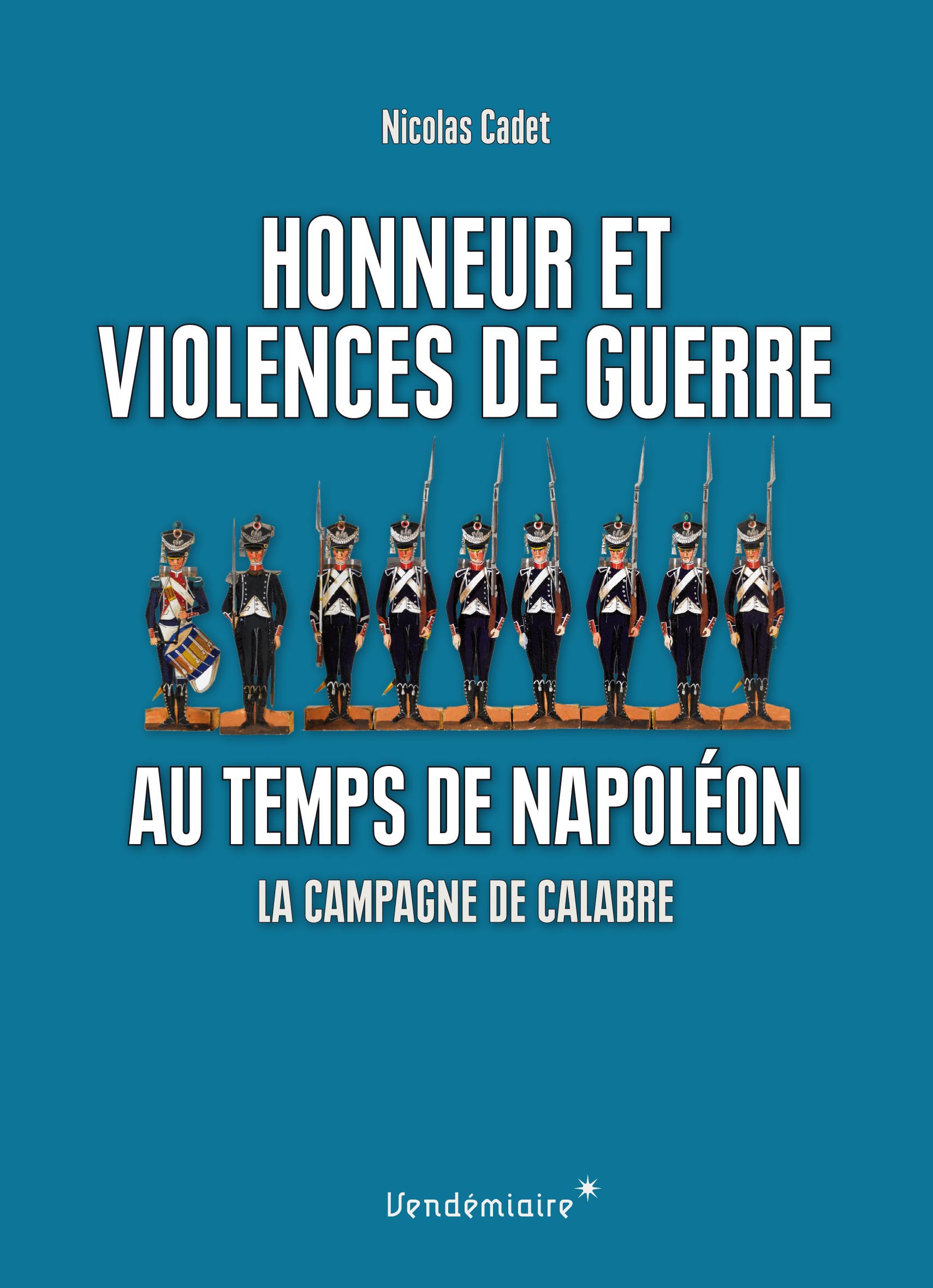Nicolas Cadet: Honneur et violences de guerre au temps de Napoléon (Honour and Violence in War in the time of Napoleon)
 In a terra incognita of dense forest and craggy mountains, the French troops are engaged in a decisive campaign for control of the Mediterranean. Initially, it is gunfire that ravages Calabria in a series of conventional battles, but in 1806 the region becomes the scene of unthinkable brutality: rape, pillage, mutilation, cannibalism, beheadings at the village gates, and so on. The violence stems from the clashing of two concepts of honour: the clannish mentality of the Calabrian rebels, suffused with a piety that approaches fanaticism, against the notions of bravery and self-sacrifice prized by the Napoleonic army, which nevertheless also harbours an ethnic prejudice that strips their adversaries of all humanity. From this confrontation between two civilisations will arise one of the most significant massacres of the First Empire. The extreme violence of this first modern guerrilla conflict, coupled with new state measures such as deportation and identity checks to increase control over the population, prefigures some of the bloodiest conflicts of the nineteenth and twentieth centuries.
In a terra incognita of dense forest and craggy mountains, the French troops are engaged in a decisive campaign for control of the Mediterranean. Initially, it is gunfire that ravages Calabria in a series of conventional battles, but in 1806 the region becomes the scene of unthinkable brutality: rape, pillage, mutilation, cannibalism, beheadings at the village gates, and so on. The violence stems from the clashing of two concepts of honour: the clannish mentality of the Calabrian rebels, suffused with a piety that approaches fanaticism, against the notions of bravery and self-sacrifice prized by the Napoleonic army, which nevertheless also harbours an ethnic prejudice that strips their adversaries of all humanity. From this confrontation between two civilisations will arise one of the most significant massacres of the First Empire. The extreme violence of this first modern guerrilla conflict, coupled with new state measures such as deportation and identity checks to increase control over the population, prefigures some of the bloodiest conflicts of the nineteenth and twentieth centuries.
Paris: Editions of the Fondation Napoléon – Vendémiaire Editions, coll. Bibliothèque du XIXe siècle, February 2015.
